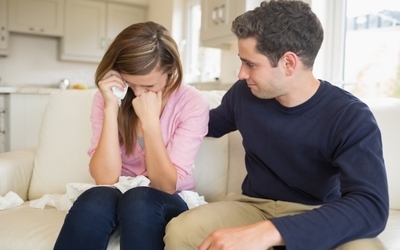How to Deal With the Pain of a Child’s Death
There can be few things that are more fundamentally distressing to us than the death of a child. We hate the idea of a child dying before its parents – there is something deeply sad and moving, and it something that it can be difficult to imagine trying to deal with. If you find yourself in this heart breaking situation you might find that the overall grief is just too much to live with and you’ll find that you are consumed by it and unable to see the good or the happiness in anything anymore. But as with all things in life, we have to pick ourselves up and move on.
Child death is truly devastating to a parent and it perhaps the most upsetting thing that you could ever go through. But if you are to move on with your life, it’s important to talk about and share your feelings with others to move to the point where you do not feel controlled by your grievances and you can live your life with remembrance rather than pure pain. Nothing will ever get rid of the pain or fill the hole that has been left in you, but if you can harness the help of others you’ll be able to deal better with your future and lead the kind of life that they would be proud of.
One of the most important things for you to do – and also one of the most difficult – is to talk about how you feel. No-one who has seen their child pass away wants to discuss it, but this is a very important step towards coming to terms with the grief. Part of the problem can be finding the right people to talk to about it. Relatives and friends will naturally find it hard to talk to you about the situation – they will also be in a state of complete sadness and it can be very difficult to open up in the way that you need to. Instead, it may be worth seeking professional advice and counselling. In this situation you are free to let your feelings out in a safe environment.
The process of grief is exhausting, both mentally and physically and it can be difficult for your friends and families to truly relate to what you feel. You need to focus spending your time with loved ones who are sympathetic to your situation and understand the weight of the grief that is upon you. They will be the most helpful in terms of getting over the pain and suffering and moving on.
Remember that a child’s death can bring up many different emotions at once and there is not one specific way to help deal with it. Some people feel that they are consumed by anger or guilt, while others are plagued by unanswered questions surrounding the death of the child, and this is very normal. Everyone grieves in a different way and it is important that you find your own method of coming to terms with the situation, however hard it is to accept.
It is important to stay strong and rely on the support of understanding loved ones rather than to give in to the pain and fears that you have. No parent should outlive their child, and when it does happen, it is a truly painful experience that can only be healed with time and right type of support. Use professional services and talk openly about your feelings. Then you’ll be able to choose the right path forward for you.


chfg